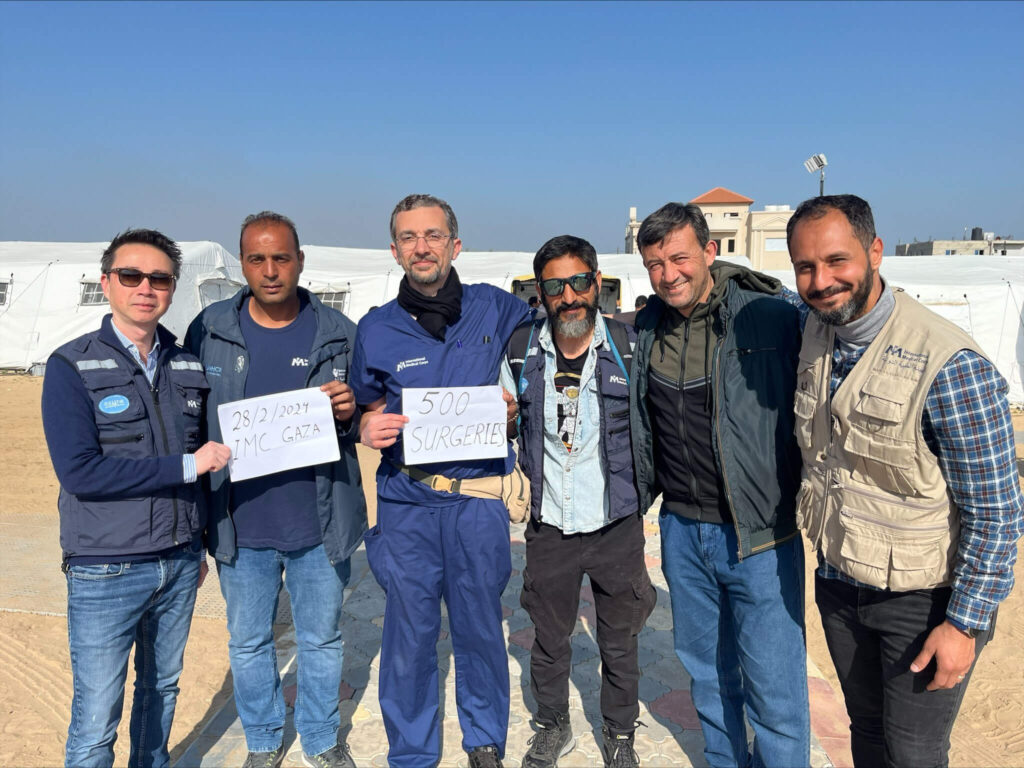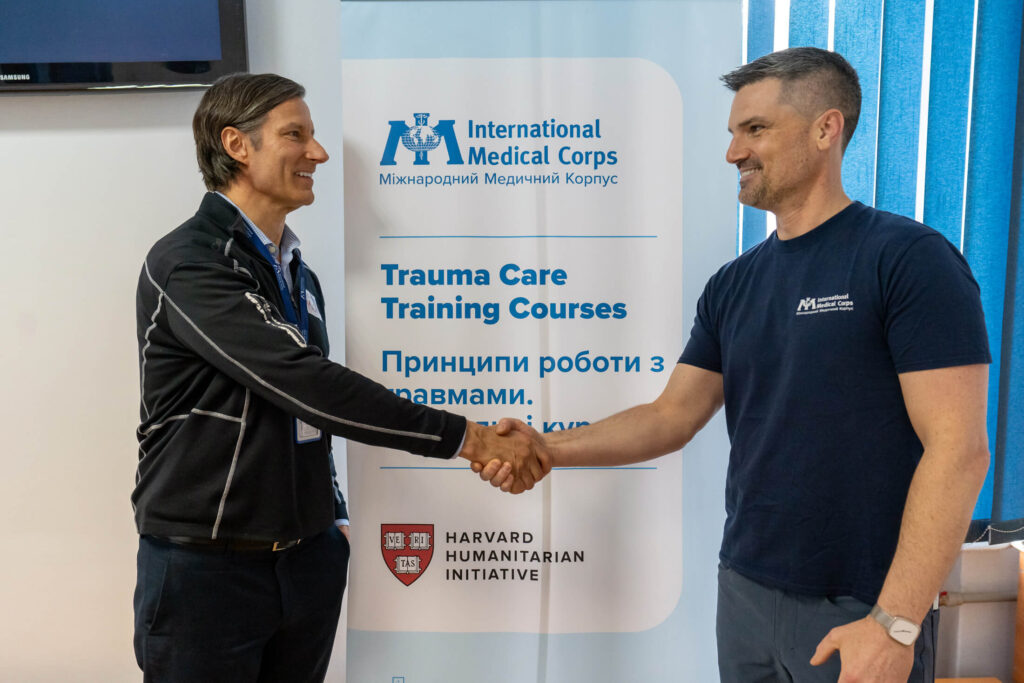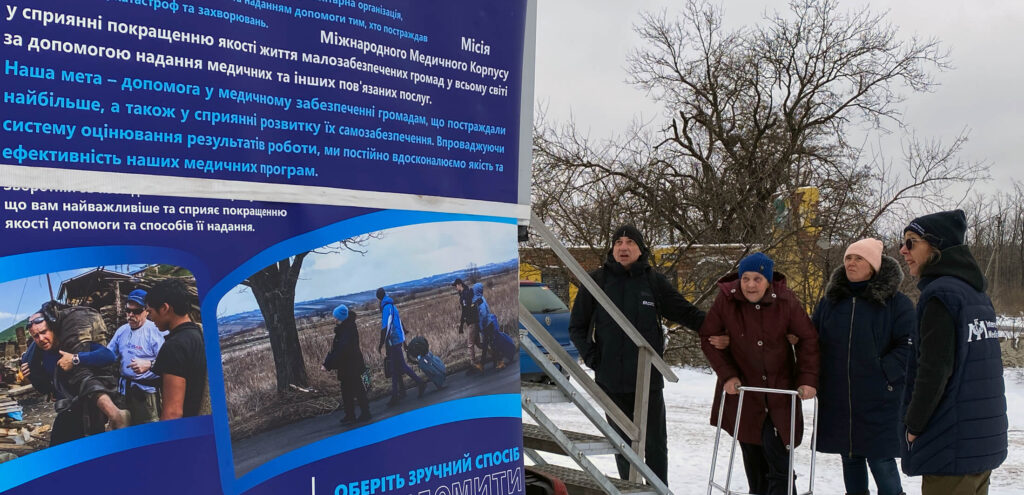Supporting Ukraine Two+ Years After the Russian Invasion
This February marked two years since Russia’s full-scale invasion of Ukraine. Since then, about one-third of the population has been forced to flee their homes, healthcare facilities and infrastructure are under constant attack and millions of people need help getting their basic survival needs met.




Thanks to our generous donors, we’ve supported more than 9 million people with lifesaving medical relief and supplies, mental health services, clean water, nutrition services, non-food items like blankets and generators, gender-based violence protection, cash assistance, training for frontline workers on trauma and mass casualty response, and more. Read more about our work in Ukraine over the past two years below.
Vaccinating Children Against Malaria in Cameroon
In late January, Cameroon launched the world’s first mass vaccination program against malaria. Ninety-five percent of fatalities from malaria occur in Africa—and 80% of those are children under the age of 5. This landmark program is expected to reduce malaria deaths by more than one-third.
Our team partnered with the Cameroon Ministry of Health to implement the new vaccination campaign. Healthcare providers are hoping this will protect the millions of at-risk children in Africa and one day even eliminate the threat of malaria.




We are currently implementing the new vaccine in the Mokolo health district, which is home to more than 70,000 refugees.
Providing Hundreds of Surgeries in Gaza
Due to demand at our Gaza field hospital, we have increased the number of beds from 50 to 140. The field hospital receives the majority of surgical patients in the area and performs an average of 12 major surgeries and six deliveries daily, including C-sections. So far, we’ve helped almost 30,000 people and are seeing as many as 800 civilians per day.

Building Sustainable Futures Around the World
Disasters and climate-related shocks can destroy farmlands, affecting people’s livelihoods and futures. We deliver gardening programs, farming equipment and emergency seed provisions so at-risk communities around the world can be more resilient when faced with the effects of climate change.




From garden to table, we’re fostering self-reliance through our food security programmes. Learn how our gardening and nutrition initiatives transform lives and build sustainable futures.
Improving Access to Water in Ethiopia
Drought conditions have limited access to water in some regions in Ethiopia, forcing residents—especially women and children—to travel longer distances for water, in some cases collecting from possibly contaminated sources, including rivers, ponds and springs. Growing needs for safe and potable water far exceed available resources.


With support from the Flora Family Foundation, our team rehabilitated five water supply systems in Chifra that now provide water for 13,000 people. With assistance from USAID and other partners, we’ve rehabilitated 75 wells, providing water for 37,500 people in Tigray.
Providing Services and Supplies to Survivors of Last Year’s Earthquakes in Türkiye and Syria
On February 6, 2023, a series of powerful earthquakes struck Türkiye and Syria, killing more than 50,000 people and leaving millions more in need of humanitarian assistance.


More than one year later, many people who lost everything have yet to recover. Since the quakes, we have been working with local authorities and partners to provide essential healthcare services to communities in need, sending mobile medical units and distributing essential medicines, medical equipment and supplies.



Over the past year, we have conducted more than 350,000 health consultations, distributed more than 50,000 hygiene and dignity kits, provided multiple health facilities with solar-powered systems and more. Learn more about our response below.
Training First Responders in Ukraine
In partnership with Harvard Humanitarian Initiative, International Medical Corps developed a comprehensive trauma care and preparedness training programme designed for health workers and first responders in Ukraine and throughout the region. To date, we have provided in-person training more than 6,000 Ukrainian first responders in different regions of Ukraine, while reaching hundreds of thousands of Ukrainians through online training videos.

This initiative is just one more example of how we train thousands of people globally every year—from local communities, from non-governmental groups (including health professionals), and from national, regional and local governments—to help them prepare for emergencies and make the journey from relief to self-reliance.


Learn more about International Medical Corps
Follow International Medical Corps on Facebook, Twitter, Instagram, LinkedIn, YouTube and TikTok.
Are you a journalist looking for information?
International Medical Corps is a global first responder that delivers emergency medical and related services to those affected by conflict, disaster and disease, no matter where they are, no matter the conditions. We also train people in their communities, providing them with the skills they need to recover, chart their own path to self-reliance and become effective first responders themselves. Established in 1984 by volunteer doctors and nurses, we are a nonprofit with no religious or political affiliation, and now have more than 8,000 staff members around the world, 96% of whom are locally hired. Since our founding, we have operated in more than 80 countries, and have provided more than $4.2 billion in emergency relief and training to communities worldwide.
Our staff includes experts in emergency medicine, infectious disease, nutrition, mental health, maternal and infant health, gender-based violence prevention and treatment, training, and water, sanitation and hygiene, all within the humanitarian context.
To arrange an interview on or off the record, contact our Media Relations team at media@internationalmedicalcorps.org.
